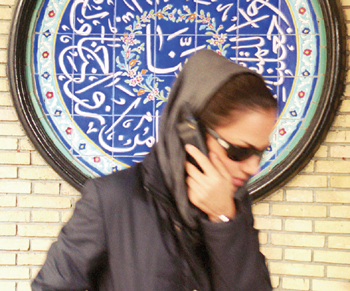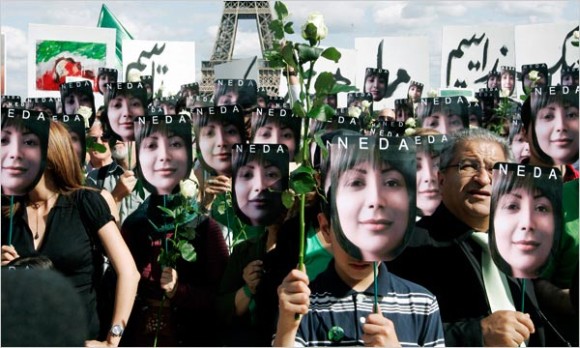The effort to “Judaize” Jerusalem is a campaign of ethnic cleansing
Netanyahu does not care so much whether people believe him or not. This week, like every other week since he returned to power, he was fully occupied with survival. In order to survive, the coalition must remain intact. To achieve this, he must show that he does not “fold” under American pressure. No better place to prove this than Jerusalem.
About Jerusalem, as official spokesmen never tire of telling us, about Jerusalem there is a national consensus. From wall to wall. From Left to extreme Right.
However, this myth is long dead. No such consensus exists. Right now, most Israelis are ready to return the Arab quarters of East Jerusalem to Palestinian rule in return for real peace. I know of no Jewish mother who is ready to sacrifice her son in a war for the Shepherd Hotel.
*
I beg to contradict yet another myth that is being propagated relentlessly by our media: that a national consensus against President Obama is forming.
As we say in classical Hebrew: No bears and no forest. Or more colloquially: No birds and no shoes.
Many Israelis, very many, hope that Barack Obama will do for them what seems impossible without him: bring them peace. They have despaired of our political system, of both the coalition and the opposition, of both Right and Left. They are convinced that only an outside force can realize this hope.
If indeed Obama does clash with Netanyahu over his refusal to freeze the settlements in the West Bank and his insistence on continuing to build in East Jerusalem, it is for Obama’s victory that many Israelis will be praying. They know that in this battle, it is not Netanyahu but Obama who represents the true interests of Israel. [continued…]
In 2 West Bank settlements, sign of hope for a deal
The ultra-Orthodox inhabitants [of Modiin Illit and its sister community, Beitar Illit] often express contempt for the settler movement, with its vows never to move. The people here, who shun most aspects of modernity, came for three reasons: they needed affordable housing no longer available in and around Jerusalem or Tel Aviv; they were rejected by other Israeli cities as too cult-like; and officials wanted their presence to broaden Israel’s narrow border.
Yet they are lumped with everyone else. The settler movement and the Israeli government point to ultra-Orthodox settlements, with their large and ever-increasing families, to argue that there is no way to stop “natural growth” without imposing acute human suffering. Those seeking a freeze use the settlements as evidence that growth is so out of control that drastic action must be taken. More broadly, opponents say the settlements violate international law, legitimize force by armed messianic Jews and ruin the chance of establishing a viable Palestinian state.
But even those who strongly favor a complete freeze acknowledge that the annual settler growth rates of 5 and 6 percent owe a great deal to these two towns that have little to do with the broader settler enterprise.
Dror Etkes of Yesh Din, an antisettlement group in Israel, noted that half of all construction in West Bank settlements was taking place in these two ultra-Orthodox communities, adding that given their location next to the boundary, it was highly likely they would be in Israel in a future deal through a redrawn border. “From a purely geographic point of view, construction there is not as destructive as elsewhere,” he said.
But he does not want building to continue in Modiin Illit or Beitar Illit without a deal for a Palestinian state, nor does he mean to imply that these settlements have been a benign force. “Land has been taken from Palestinians, in some cases from private landowners, for the building in these settlements, and there are many other issues like sewage flow into Palestinian villages that must be addressed,” Mr. Etkes said.
Settler leaders reject any distinction. The fact that the ultra-Orthodox came to the West Bank to solve their housing problems is “completely O.K. with me,” said Dani Dayan, chairman of the Yesha Council, the settlers’ political umbrella group. “They are an integral part of our endeavor and our achievement.”
But even in Bilin, the Palestinian village that abuts Modiin Illit and has become a symbol of Palestinian resistance against Israel’s West Bank separation barrier, the settlers over the fence are viewed as different from the Jewish nationalists in, say, Hebron.
Abedallah Abu Rahma, a teacher from a farming family and a leading activist in the village, pointed toward the settler high-rise buildings visible across the valley from his living room window and said: “They tell us, ‘We are poor, the apartments here are cheaper and we did not know it was a settlement.’ Many told us, ‘Give us our money back and we will leave.’ ”
The Palestinians, who hold weekly demonstrations against the barrier, have even joined forces with some of the settlers. Two years ago, Bilin won a major Supreme Court case that forced a change in the route of the barrier, and some of the documents the victorious villagers used, Mr. Abu Rahma said, had been secretly passed to them by ultra-Orthodox settlers feuding with their own municipal leaders. [continued…]

 n June 15, five of my relatives — the oldest 65, the youngest 22 — spent four hours traveling across Tehran’s sprawling metropolis to reach a demonstration against the country’s election result. They first crammed into a creaky Iranian-made car, rode part of the way in a dilapidated bus and walked the final three miles. They strode quietly north along with an estimated 2 million others, hopeful that their show of peaceful force would convince the government to annul the election. The next day, the authorities began viciously attacking demonstrators. They dispatched plainclothes henchmen with pistols in their pockets to shoot randomly at civilians. Dissent, Iranians learned, could cost them their lives.
n June 15, five of my relatives — the oldest 65, the youngest 22 — spent four hours traveling across Tehran’s sprawling metropolis to reach a demonstration against the country’s election result. They first crammed into a creaky Iranian-made car, rode part of the way in a dilapidated bus and walked the final three miles. They strode quietly north along with an estimated 2 million others, hopeful that their show of peaceful force would convince the government to annul the election. The next day, the authorities began viciously attacking demonstrators. They dispatched plainclothes henchmen with pistols in their pockets to shoot randomly at civilians. Dissent, Iranians learned, could cost them their lives.